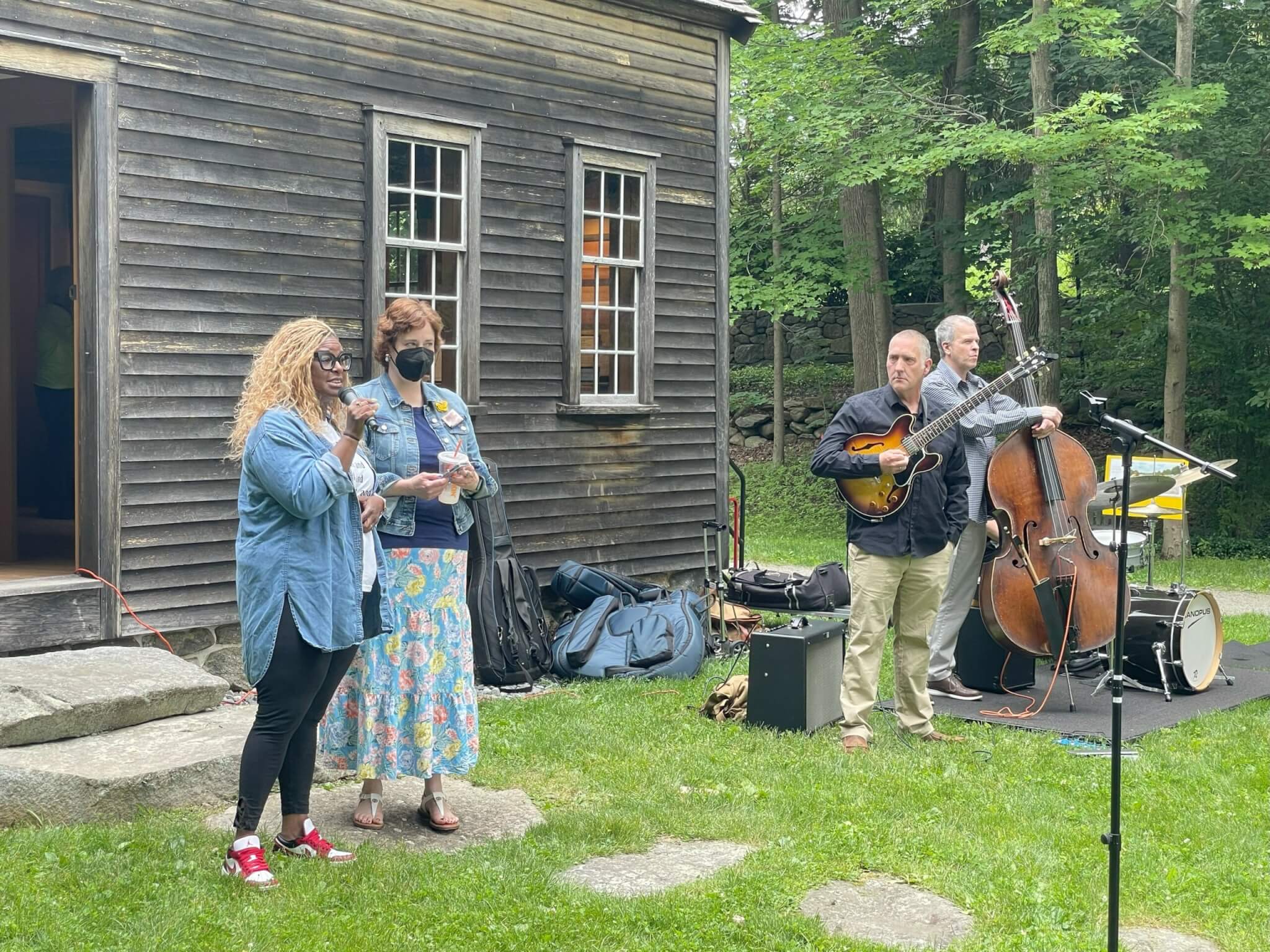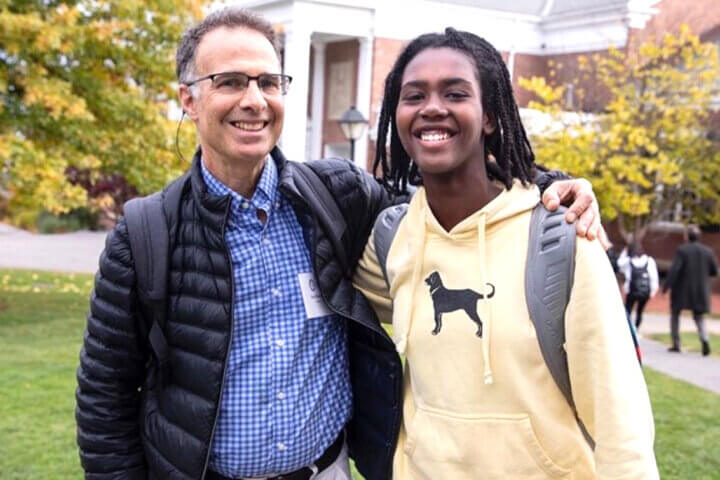By Oliver Longo
Correspondent
Concord residents gathered at the Caesar Robbins House on Monument Street for a public celebration of Juneteenth. The local community and visitors were treated to live music played by the Concord Conservatory Jazz Trio, a barbecue food truck, ice cream, and tours of the Robbins House.
Monday, June 19 marked Concord’s first celebration of the national holiday recognizing Juneteenth, when slaves in Texas were declared free on June 19, 1865, two years after the Emancipation Proclamation. It is also called “Freedom Day” and “Jubilee Day.”
The event was a balance of celebration and education, both commemorating the historic day of emancipation while acknowledging and illuminating the difficult history of slavery and the continuing fight against inequality.
Nichole Turpin, the president of the Robbins House and director of Diversity, Equity and Inclusion at Chapel Hill Chauncy Hall, shared the goals of the Juneteenth event.
“It’s always about education, that’s how you get people to understand each other,” Turpin said, “Celebrating freedom but knowing that it’s still a work in progress.”
Calvin Pearson, part of the 1619 Project and member of the National Juneteenth Observance Foundation, spoke on the Robbins House front lawn about the history of Juneteenth and Concord, as well as the importance of moving forward, united, through history.
The Caesar Robbins House and Juneteenth go hand in hand; the house preserves the memory of those that fought towards the end of slavery. The significance of the Robbins House is found in its former residents; it was built for the family of Revolutionary War veteran Caesar Robbins, a formerly enslaved man who was freed before the abolition of slavery.
Joe Palumbo, interpreter and board member at the Caesar Robbins House noted, “The town has a history of enslavement and we have to know that.”
Robbins’ granddaughter, Ellen Garrison, who is described as “Concord’s Rosa Parks,” was an educator and civil rights activist. Nearly 100 years before Rosa Parks famously sat in the back of an Alabama bus, Ellen Garrison bravely entered a segregated Baltimore train station waiting room in the pursuit of testing the nation’s Civil Rights Act, and was “forcibly ejected.”
The year-round goals of the Robbins House are to promote conversation about social justice, cultivate educational resources and to rediscover and share the stories of early Black residents in Concord.
Turpin also shared her hopes to use their space in creative ways in the future, utilizing the house to showcase art and “lift up voices of artists” in addition to continuing to tell the story of Ellen Garrison and her family.
When asked how Concord residents can contribute to the “work in progress” of pursuing equity in America, Turpin stressed the importance of inclusion in the town community.
“It doesn’t have to be any kind of monetary exchange,” she said. Rather, “Giving of yourself, sharing things with the community.”






